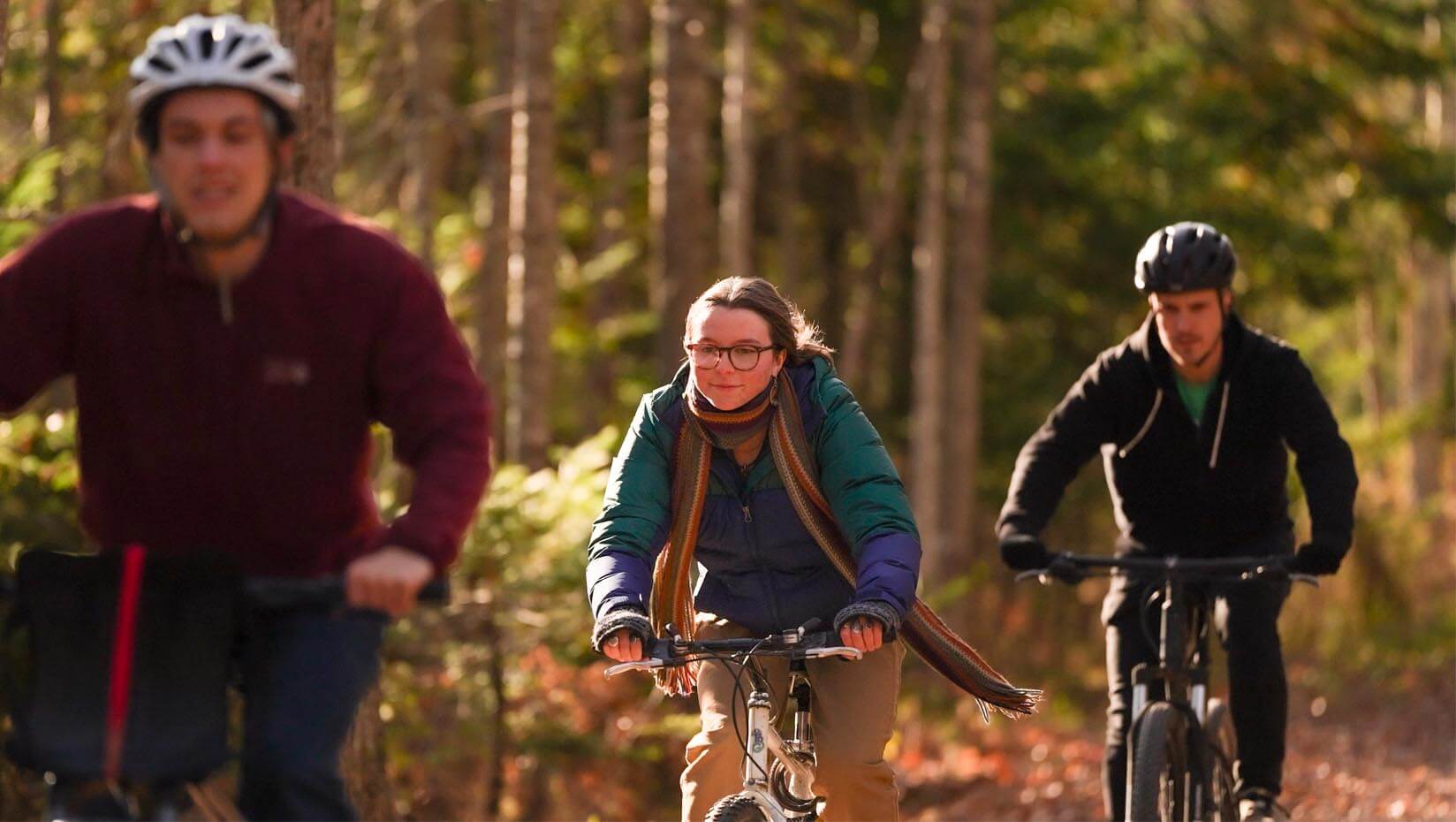
UMaine joins collaborative effort to bolster Maine’s outdoor recreation economy
From hiking, camping and biking to boating, hunting and snowmobiling, the outdoor recreation industry plays a significant role in supporting Maine’s economy, contributing $3.3 billion annually. To help bolster statewide economic growth within the state’s outdoor recreation industry, the University of Maine has partnered with Maine Outdoor Brands and the Maine Office of Outdoor Recreation to initiate the Maine Outdoor Recreation Economy Roadmap.
“This collaborative effort is poised to propel Maine’s outdoor recreation economy to new heights, fostering job creation, economic resilience, and an enhanced quality of life for residents and visitors alike,” states Jenny Kordick, executive director of Maine Outdoor Brands.
Once completed, the Maine Outdoor Recreation Economy Roadmap will chart a comprehensive strategy to bolster statewide economic growth and diversification through the pursuit of four key objectives:
- Economic Analysis: Provide a current analysis of the economic value of the outdoor economy to the state of Maine.
- Sector Awareness: Define and increase awareness of the diverse sectors that make up Maine’s outdoor recreation economy.
- Strategic Investment: Identify pivotal strategies and investments needed to fuel sustained growth and diversification of Maine’s outdoor economy over the next decade.
- Partnerships and Collaborations: Forge partnerships and collaborations to secure additional investment and enact the strategies identified.
“This effort is not just about defining Maine’s outdoor recreation economy; it’s about unlocking its full potential,” adds Carolann Ouellette, director of the Maine Office of Outdoor Recreation. “Through a baseline analysis, strategic identification of growth drivers, and expanding partnerships, we’re laying the foundation for a thriving future.”
Further strengthening the initiative, core partners such as the Maine Marine Trade Association, Maine Technology Institute, and the Bureau of Parks and Lands are actively engaged. Additionally, the Steering Committee comprises over 20 individuals from the public and private sectors across the state. Past statewide roadmaps, such as the Forest Opportunity Roadmap (FOR/ME), have been catalysts for focusing stakeholder efforts and expanding collaboration, opportunity, and investment for their respective sectors, serving as a successful model for this new effort.
The Roadmap initiative commenced with an extensive stakeholder engagement process launched last November at the Maine Outdoor Economy Summit, convening nearly 200 industry leaders from across the state for strategic visioning sessions. Building on this momentum, ongoing collaborative efforts include additional workshops open to interested participants Feb. 26–29. These facilitated, action-oriented workshops are designed to harness collective expertise and transform ideas into concrete strategies supporting the Roadmap’s objectives. A public survey is also currently available on the Roadmap’s website. A second set of workshops will be offered in the late spring, with a final plan expected this fall.
“Our long-standing outdoor recreation expertise and new initiatives within the university and across the University of Maine System (UMS) create opportunity for a more sustainable, inclusive, and innovative outdoor recreation economy. We are a proud partner in this effort and are committed to finding new solutions to advance this vital industry and preserve the natural spaces on which we all rely,” said University of Maine President and UMS Vice Chancellor for Research and Innovation, Joan Ferrini-Mundy.
Funding for the Roadmap initiative is being provided by the American Rescue Plan Act Travel, Tourism, and Outdoor Recreation grant program administered by the U.S. Economic Development Administration. This funding is specifically aimed at addressing the challenges posed by the pandemic on Maine’s travel, tourism, and outdoor recreation industries. As a result, the Roadmap is dedicated to enhancing the synergy between Maine’s unique natural resources and the state’s long-term economic strength.
To participate in the survey, register for upcoming workshops, or for further information, visit: trailblazerroadmap.com/get-involved.
Contact: Shelby Hartin, shelby.hartin@maine.edu
